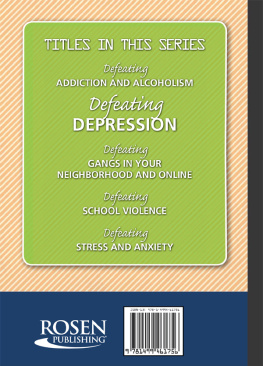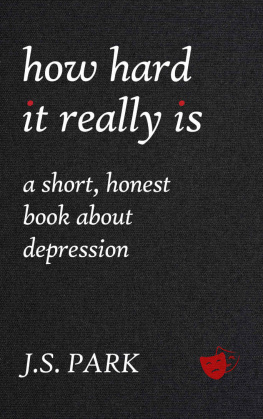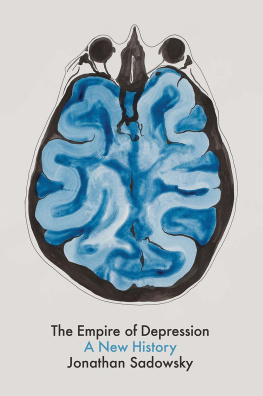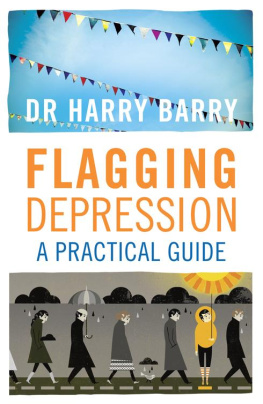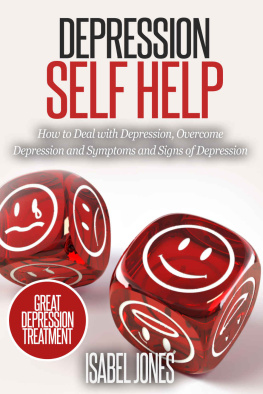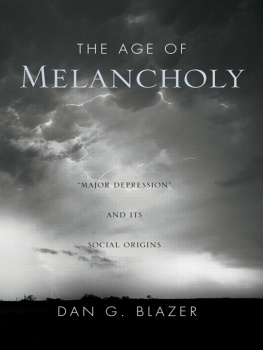Junko Kitanaka - Depression in Japan: Psychiatric Cures for a Society in Distress
Here you can read online Junko Kitanaka - Depression in Japan: Psychiatric Cures for a Society in Distress full text of the book (entire story) in english for free. Download pdf and epub, get meaning, cover and reviews about this ebook. year: 2012, publisher: Princeton University Press, genre: Politics. Description of the work, (preface) as well as reviews are available. Best literature library LitArk.com created for fans of good reading and offers a wide selection of genres:
Romance novel
Science fiction
Adventure
Detective
Science
History
Home and family
Prose
Art
Politics
Computer
Non-fiction
Religion
Business
Children
Humor
Choose a favorite category and find really read worthwhile books. Enjoy immersion in the world of imagination, feel the emotions of the characters or learn something new for yourself, make an fascinating discovery.

- Book:Depression in Japan: Psychiatric Cures for a Society in Distress
- Author:
- Publisher:Princeton University Press
- Genre:
- Year:2012
- Rating:5 / 5
- Favourites:Add to favourites
- Your mark:
Depression in Japan: Psychiatric Cures for a Society in Distress: summary, description and annotation
We offer to read an annotation, description, summary or preface (depends on what the author of the book "Depression in Japan: Psychiatric Cures for a Society in Distress" wrote himself). If you haven't found the necessary information about the book — write in the comments, we will try to find it.
Since the 1990s, suicide in recession-plagued Japan has soared, and rates of depression have both increased and received greater public attention. In a nation that has traditionally been uncomfortable addressing mental illness, what factors have allowed for the rising medicalization of depression and suicide? Investigating these profound changes from historical, clinical, and sociolegal perspectives, Depression in Japan explores how depression has become a national disease and entered the Japanese lexicon, how psychiatry has responded to the nations ailing social order, and how, in a remarkable transformation, psychiatry has overcome the longstanding resistance to its intrusion in Japanese life.
Questioning claims made by Japanese psychiatrists that depression hardly existed in premodern Japan, Junko Kitanaka shows that Japanese medicine did indeed have a language for talking about depression which was conceived of as an illness where psychological suffering was intimately connected to physiological and social distress. The author looks at how Japanese psychiatrists now use the discourse of depression to persuade patients that they are victims of biological and social forces beyond their control; analyzes how this language has been adopted in legal discourse surrounding overwork suicide; and considers how, in contrast to the West, this language curiously emphasizes the suffering of men rather than women. Examining patients narratives, Kitanaka demonstrates how psychiatry constructs a gendering of depression, one that is closely tied to local politics and questions of legitimate social suffering.
Drawing upon extensive research in psychiatric institutions in Tokyo and the surrounding region, Depression in Japan uncovers the emergence of psychiatry as a force for social transformation in Japan.
Junko Kitanaka: author's other books
Who wrote Depression in Japan: Psychiatric Cures for a Society in Distress? Find out the surname, the name of the author of the book and a list of all author's works by series.

